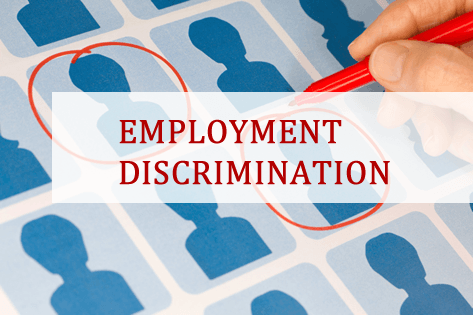In order to achieve sustainable human development every country must foster a labour force favourable to social integration by formulating a rational set of recruitment policies. To ensure meaningful participation of citizens in economic, cultural and social life and to realize their full potential, it is imperative to guarantee equal opportunities for all in employment and occupation.
In Bangladesh, equal opportunity in public employment is guaranteed in Articles 27 and 29 of the Constitution. Despite being guaranteed in the Constitution, absolute equal opportunity is neither possible nor desirable as it is a well-established principle that in order to commence selection process of any appointment procedure, classification among the candidates is a sine qua non.
Classification which can simply be defined as an action or process of grouping, sorting, categorising, ranking or grading something according to shared qualities or characteristic, is primarily a business of the legislature or for the statutory authority charged with the duty of framing the terms and conditions of service. As the principle of classification falls within the mischief of Constitutional code of equality of opportunity in employment as enshrined in Articles 27 and 29 of the Constitution, it must be dealt with the utmost care. The following view taken by the Indian Supreme Court in the case of State of J. & K. v. T.N. Khosa AIR 1974 (SC) 1 supports this notion:
“Classification, therefore, must be truly founded on substantial differences which distinguish persons grouped together from those left out of the group and such differential attributes must bear a just and rational relation to the object sought to be achieved.”
Supreme Court of Bangladesh supported this stance in the case of Nurul Islam v. Bangladesh 1 BLD (1981) (HCD) 12. Classification is thus justified and constitutional when it is based on a just and rational relation to the object sought to be achieved. Therefore, classification done by prescribing a particular educational qualification as a primary condition to apply for a particular service is constitutional if the object sought to be realized rationally demands it. For instance, while recruiting for Judicial service, providing LL.B. (Hon’s) as the basic qualification is well justified but the same will be unjustified if it were a requirement for a post of a Primary School Teacher. Therefore, the recruitment process must be rational in order to serve the conditions of a service.
The concept of discrimination on the basis of age remains unheard of in our country till this day. Whereas, European Union prohibits age discrimination in ‘Council Directive 200/78/EC of 27 November 2000’, which established a general framework for equal treatment in employment and occupation in order to encourage diversity in the workforce. Enforcing the principle of non-discrimination, in the case of Mario Vital Perez v. Ayuntamiento de Oviedo [Case C-416/13], the Hon’ble European Court of Justice observed that, the national legislation of Spain which had fixed a maximum recruitment age of 30 for local police officers, cannot be considered necessary, therefore the difference of treatment was held not to be justified under Article 6(1) of the said Directive. Complying with the provisions of the Directive, United Kingdom adopted The Employment Equality (Age) Regulation 2006, which came into force on 01 November, 2006.
In this article emphasis will be given to one of the most important recruitment policies in Bangladesh, The Bangladesh Civil Service (age, qualification and examination for direct recruitment) Regulation, 2014 (hereinafter referred to as the Regulation). This Regulation being the rubric of the most sought after employment opportunity in Bangladesh must bear close scrutiny from non-discrimination point of view.
In order to keep accordance with justified required qualifications i.e. education, psychological development and other qualifications, this Regulation has classified candidates eligible to attend the exams conducted by Bangladesh Public Service Commission for the Cadre posts as mentioned in Schedule I of the Regulation into three groups- 1. Under 21 years, 2. 21-30 years and 3. Over 30 years. The second and third group fulfill all other conditions provided by the Regulation in regard to eligibility for appointment in the posts mentioned in Schedule I of the Regulation. The only differentia between these two groups is age. It can therefore be said that the provision by classification creates a difference of treatment based on the ground of age.

The objective of conducting exams, for appointment in the posts mentioned in Schedule I of the Regulation, is the selection of capable and efficient candidates. Therefore, while leaving out a group by means of such classification it has to be scrutinised whether the left out group is capable to dispense the occupational duties assigned to the posts concerned. The difference of treatment on the basis of age can only be justified where characteristic related to age constitutes a genuine and determining occupational requirement. For example, recruitment in the Military Service for the age group of 18-23 is just as Military Service requires high physical capacities for a long span of time. Otherwise, such classification on the ground of age is unreasonable for a number of reasons.
Firstly, the appropriate level of physical and mental fitness to perform the duties involved in a certain post, and the capability of the left out group to perform the same must be looked into while leaving out a group on the basis of age for a certain post. None of the posts apart from posts BCS (Police), BCS (Ansar) mentioned in Schedule I of the Regulation requires high level of physical fitness. It is pertinent to mention that for ensuring physical fitness every candidate have to go through an intensive medical examination conducted by a Medical Board after passing the MCQ, Written and Viva-voce test. Passing the physical examination is mandatory for the appointment to these posts.
Thus, there is no justification to screen out the persons over 30 years of age by way of such classification, as the examinees must demonstrate their physical and mental capacity to perform the duties assigned to the said posts in order to be appointed. The classification therefore on the ground of age is unreasonable and bears no nexus with the purported object sought. There is no rational basis for curtailing the right to equality of opportunity in the matter of public employment of the persons over 30 (thirty) years of age, which is a constitutionally protected fundamental right.
Secondly, the provision is also discriminatory, as it overlooks the Higher Education scenario of Bangladesh. One of the greater cons of higher education in Bangladesh is Sessions Jam. It generally takes 12 + 5-6 years (more, in case of National University students) to complete the graduation which is the minimum educational requirement for the posts. Although most of the posts require 4 years Honours Degrees, some of the posts even require Post-Graduation degrees, which takes away another couple of years from the candidates. The provision therefore is not only unreasonable but also a bar to proper utilization of the workforce of this country and to realize their full potential.
So in conclusion, it can be said that the provision is discriminatory as it makes an unreasonable and unjustified classification on the ground of age without considering the particular occupational activities concerned, as well as for not being based on any legitimate employment policy addressing the drawbacks of prevailing educational infrastructure. The provision is neither appropriate nor necessary and has no nexus with any legitimate aim. Therefore, the judiciary as the guardian of the Constitution can look into the vires of the provision in order to secure right to equality and right to equal opportunity in public employment. Because, a country which tolerates discrimination, and systematically underestimates the potential of large number of its citizens, will waste vast quantities of human capital.
The Author is thankful to the DHLR team for their suggestions on the earlier draft version of this article.













No Comments
Leave a comment Cancel